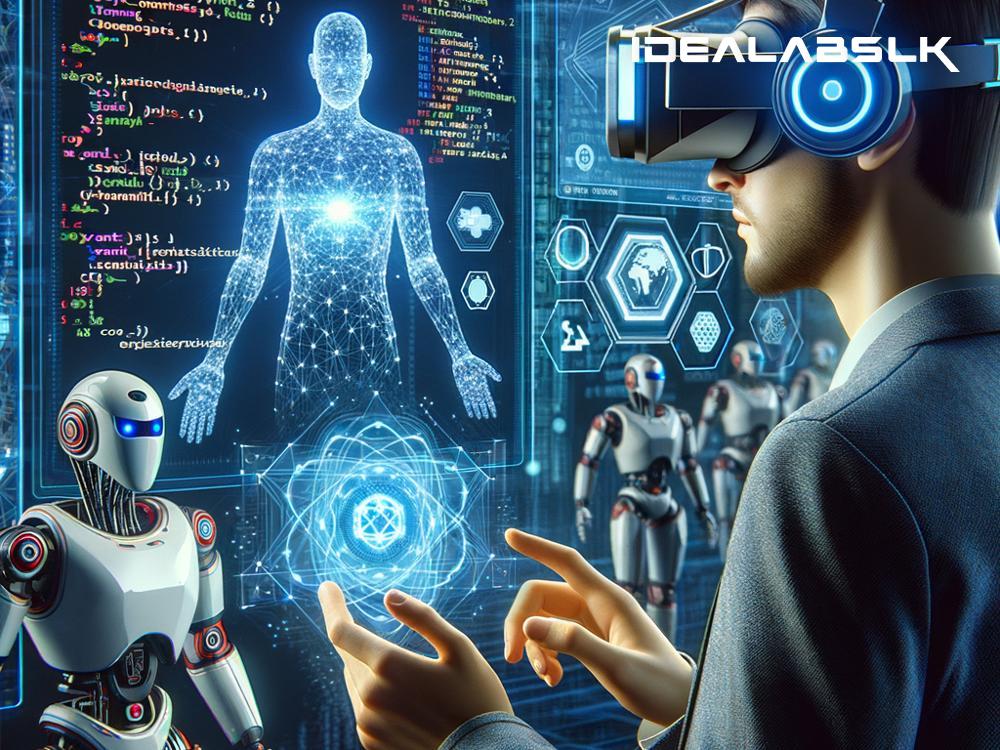Title: The Game-Changer: How AI Will Transform Game Development and Design by 2025
The world of video game development and design is on the brink of a significant transformation, thanks to the rapid advancements in Artificial Intelligence (AI). By 2025, we're looking at a new era where AI doesn't just play a role in creating games but revolutionizes the entire industry. From personalized gaming experiences to cutting-edge game designs that adapt to player behavior, AI is set to take the gaming world by storm. Let's explore how AI will change the game development and design landscape in simple terms.
The Birth of Ultra-Realistic Game Environments
AI technology is already making waves in creating hyper-realistic game environments that are nearly indistinguishable from the real world. By 2025, AI will have mastered the art of crafting detailed settings, utilizing vast amounts of data to generate textures, landscapes, and even weather patterns that react and evolve just like in the real world. Imagine playing a game where the environment changes with the actual seasons or where unexpected weather phenomena can alter your game strategy!
AI-Powered NPCs: Friends or Foes
Non-Playable Characters (NPCs) are crucial to the storytelling and immersive experience of games. Currently, NPCs follow pre-programmed behaviors which can sometimes feel robotic. Enter AI, transforming NPCs into complex beings capable of learning and adapting. By 2025, expect NPCs that can have deeper interactions with players, offering more authentic and engaging experiences. These AI-driven characters might develop personalities, remember player actions, and react in unpredictable ways, making every gaming session unique.
The Rise of Procedural Content Generation
Creating new game content is a lengthy and costly process. AI is set to revolutionize this by enabling procedural content generation – where games generate levels, quests, and even entire worlds on the fly, using algorithms. By 2025, this means endless gameplay possibilities, as AI continually creates unique challenges and environments tailored to individual players. Whether it's a never-before-seen planet in a space exploration game or a dynamically changing dungeon in a fantasy RPG, games will always have something new to offer.
Personalized Gaming Experiences
AI is on its way to making one-size-fits-all game experiences a thing of the past. By 2025, we anticipate games that learn from how you play and adjust accordingly. Love puzzles but not a fan of combat? The game could tilt towards more puzzle-solving elements when you play. AI can analyze your gameplay style, preferences, and even skill level, adjusting the game's difficulty and content in real-time to keep you engaged and entertained.
Game Testing and Quality Assurance Revolution
Testing games to ensure they're bug-free and balanced is a monumental task. AI is changing the game here as well. Automated AI testers can play games 24/7, exploring every nook and cranny faster and more thoroughly than human testers ever could. By 2025, AI-driven testing will likely become standard practice, significantly reducing the time and resources needed to polish games and ensure they're ready for launch.
A New Paradigm in Game Design and Development
With AI's influence, the role of game designers and developers is set to evolve. Instead of focusing on tedious and repetitive tasks, creatives will have more freedom to explore innovative game concepts and narratives. AI can handle the heavy lifting of coding, asset creation, and even balancing game mechanics, allowing designers to focus on what they do best – creating compelling and enjoyable content.
The Ethical Dimension
As we embrace AI's potential to revolutionize game development and design, it's also essential to approach this new frontier with a sense of responsibility. Ensuring that AI is used ethically, particularly in how it collects and uses player data for personalized experiences, will be paramount. Furthermore, as AI takes on more development tasks, the industry must navigate these changes thoughtfully, valuing human creativity and ensuring fair employment practices for game developers.
Conclusion
The advancement of AI technology is poised to revolutionize game development and design in ways we're just beginning to understand. By 2025, the integration of AI will lead to more realistic game environments, smarter NPCs, endless content, personalized experiences, and more efficient game testing. This transformative journey promises an exciting future for both gamers and developers alike, marking the dawn of a new era in the gaming industry. As we look forward to these innovations, let's also commit to navigating the ethical considerations thoughtfully, ensuring that as games become more intelligent, they also remain fair, respectful, and inclusive. The future of gaming is bright, and AI is the shining beacon leading the way.

